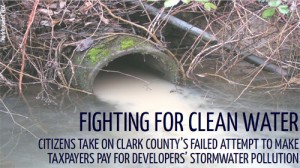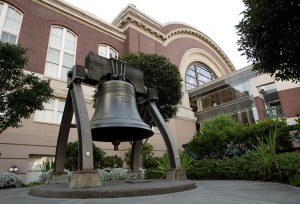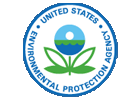 US District Judge Ronald Leighton ruled Thursday Clark County violated their Phase I Permit from August 2008 to December 2011 in what marks a landmark decision for stormwater controls in Washington State.
US District Judge Ronald Leighton ruled Thursday Clark County violated their Phase I Permit from August 2008 to December 2011 in what marks a landmark decision for stormwater controls in Washington State.
Rosemere Neighborhood Association, Columbia Riverkeeper, and the Northwest Environmental Defense Center represented by Earthjustice attorneys Jan Hasselman and Janette Brimmer began the fight for enforcing EPA Clean Water standards for polluted stormwater mitigation in 2010 (see story here)
In January 2011, the Washington State Pollution Control Board ruled that Clark County’s “alternative” plan for monitoring stormwater was illegal (story here). Clark County subsequently filed an appeal of the Pollution Board’s ruling, but in December 2011, Judge Leighton ruled that pending their appeal, Clark County must comply with Washington State’s stormwater guidelines (story here).
Most recently, in May, Judge Leighton found Clark County’s argument for modified stormwater controls “makes no sense,” as the Pollution Control Hearings Board decision was clear that Clark County’s modified Agreed Order with Ecology was “unlawful” and the Permit Modification was “invalid.”
“We are elated that our efforts to protect the environment have yielded such a positive result,” said John Felton, Chairman, Rosemere Neighborhood Association.
From the Summary Judgment ruling:
Even viewed in the light most favorable to Clark County, the evidence supports no
conclusion other than Clark County is liable for violating the 2007 Phase 1 Permit during this time period. The 2007 Phase 1 Permit required Clark County to adopt the default stormwater flow control standard or an approved alternative by August 16, 2008. Clark County, however, to adopt a flow control ordinance that complied with the Permit. On December 28, 2011, this Court enjoined Clark County from issuing any permit or authorization that fails to meet the Phase 1 Permit’s flow control standards. Prior to the injunction, Clark County authorized numerous development projects that should have been subject to the Permit’s flow control requirements, but were not. Brimmer Decl., Ex. G–H, Dkt. #22. As a matter of law, Clark County is liable for violating the 2007 Phase 1 Permit from August 17, 2008 until December 28, 2011. Rosemere’s Motion on this point is GRANTED.
“This is a great day for counties and cities in our state that are working hard to clean up polluted waterways,“ said Janette Brimmer, attorney for Earthjustice. “We applaud the ruling for recognizing that everyone needs to do their share to protect our precious streams, rivers and salmon and that Clark County, like everyone else, must follow the law.”
To read Judge Leighton’s Order in full: Judge_Leighton_Order_RE_Stormwater_Summary_Judgment_6-6-2013
Earthjustice Press Release: Earthjustice Clark Co Stormwater WIN final press release June 7 2013
In the Columbian: County violated Clean Water Act for three years, judge says
In the Oregonian: Clark County violated federal Clean Water Act for 3 years, judge rules











![Washington State Water Quality Assessment [303(d)] Washington State Department of Ecology](http://www.rosemerena.org/home/wp-content/uploads/2009/03/ecy_logo.gif)

